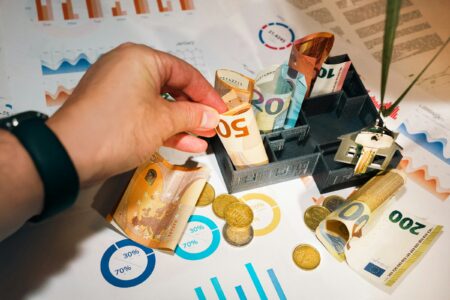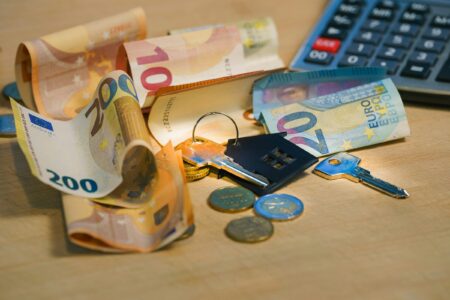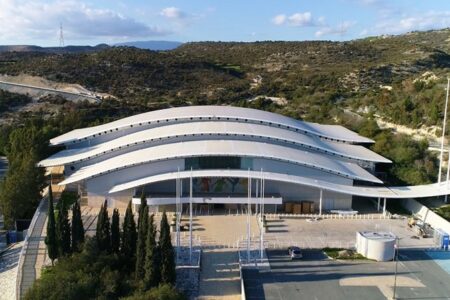11.07.2021
Shortly after the citizenship-by-investment report, economist George Koumoullis argued that Cyprus had a kleptocracy, a system of government in which political leaders use their position to increase personal wealth.
The government is said to have completely disregarded the legal opinions presented in 2015 and 2016 by the Attorney General. They stated that it was illegal to grant citizenship to family members of an investor.
The report provides plenty of evidence that the government was more interested in maximizing passport sales than acting within the law. Thus, several members of the government, including the president, have directly benefited from this scheme. Their next of kin earned large sums of money either by representing the applicants or by helping them sell their property.
Along with this, Koumoullis recalled the recognition of the archbishop by the local media, he told President Anastasiadis: “We must stop stealing, including me.”
The archbishop accepted a donation of €300,000 for the Church and €10,000 into his personal bank account from fugitive Joe Taek Lowe. He is the main perpetrator of the infamous 1MDB scandal in Malaysia for his efforts to persuade the government to grant him Cypriot citizenship.
Anastasiades and his ministers did not bother to state their interest in approving citizenship applications filed by their family law firms. They behaved as if they had the right to use their position to become richer.In any democratic country that respects the rule of law, such scandals would by now not only lead to the resignation or dismissal of the government, but also to criminal charges against the president and those ministers who benefited from passport applications.
In Cyprus, however, all it took to close the case was a hesitant public apology from the president, who said there was no fraud or embezzlement.
During his presidency, the Citizenship by Investment scheme was adapted to create more favorable conditions for his family. There are suggestions that the amount of enrichment may exceed 300 million euros.
Unfortunately, there are very few checks and balances to the power of the president in Cyprus.
This is another side effect of the unresolved Cyprus problem.
The 1960 constitution granted these checks and balances to the Turkish Cypriot community, with the result that they have not been in operation since 1963.
Although there have been abuses of power in the past, nothing has caused the country more inconvenience than the sale of golden passports.
Because of the famous Al Jazeera documentary that exposed Cyprus’ corruption to the rest of the world, the country is now officially accused by the European Commission – along with Malta – of failing to fulfill its obligations under the “Sincere Cooperation” Treaty with other states. – EU members.
After all, Cyprus was selling not only Cypriot passports but also EU citizenship to the world’s most famous white-collar workers, dictators and shadow oligarchs.The Commission has repeatedly warned the government against this EU value scheme since 2015.
The government simply ignored these warnings.
The economic consequences of kleptocracy are serious.
Almost by definition, kleptocracy impoverishes a nation.
When the state’s priority is to enrich those in power, economic growth benefits few, if any. As a rule, this happens at the expense of the majority of citizens. The main segments of the population remain poor.
In the case of the golden passports, real estate professionals (including the president’s son-in-law), law firms and accounting firms acting as agents of the applicants benefited.
Property boom in Cyprus
However, the economic effects of the property boom and bust associated with the golden passport scheme are already evident and are being paid for by the rest of society. During the boom, rental properties became prohibitively expensive, and during the crash, the entire real estate market will feel the ripple effect of unsold, overpriced properties destined for “investors”.
The same can be said about the environmental consequences that will be felt for many decades to come.
The list of economic shortcomings also includes the redirection of scarce resources from productive use to real estate speculation, including the misallocation of talent by drawing the best minds into unsustainable activities.
The pursuit of the most profitable buyers of golden passports is usually associated with the attraction of “white collars” – those who are willing to pay more for a new citizenship, earned money illegally and seek to avoid legal consequences, such as Joe Lowe.
We must also consider the negative psychological impact on the younger generation and the brain drain that often leads to a long list of unfortunate consequences.
When new entrants into the labor market realize that their education and skills are less important than their contacts with those in power, they become frustrated and demotivated, often becoming economic migrants to help other countries develop.
Last but not least, the reputational damage to a country’s name deters real investors who don’t want to associate their names with a kleptocratic money laundering regime.This is indeed the lesson to be learned from the 2012-2013 crisis.
As explained in Koumoullis’ book, Diary of the Euro Crisis in Cyprus, the country should have known long ago who were the real culprits of this crisis.
The same law and accounting firms have gone out of their way to attract illicit money and shady foreign oligarchs to Cyprus.
The doubling of the Cypriot banking system in 2005-2010 and the associated credit boom during that period were entirely the result of a large influx of illicit foreign funds.
The reckless investment of two big companies in Greek government bonds at the height of the Greek crisis was nothing more than a resurgence game. Ultimately, they provoked the Cyprus crisis and became an attempt to replace the income from reckless lending, which went sideways.
Had Cyprus learned its lesson much sooner, as it should have, the kleptocrats would have lost power long ago.
And we would have reached a peaceful settlement of the Cyprus problem even when Mustafa Akıncı was in power.
However, it is important to remain optimistic that Cyprus will finally learn the right lessons from the golden passport scheme.
History teaches us that although kleptocracies may last for several years, sooner or later they collapse, accompanied by a big explosion.
















